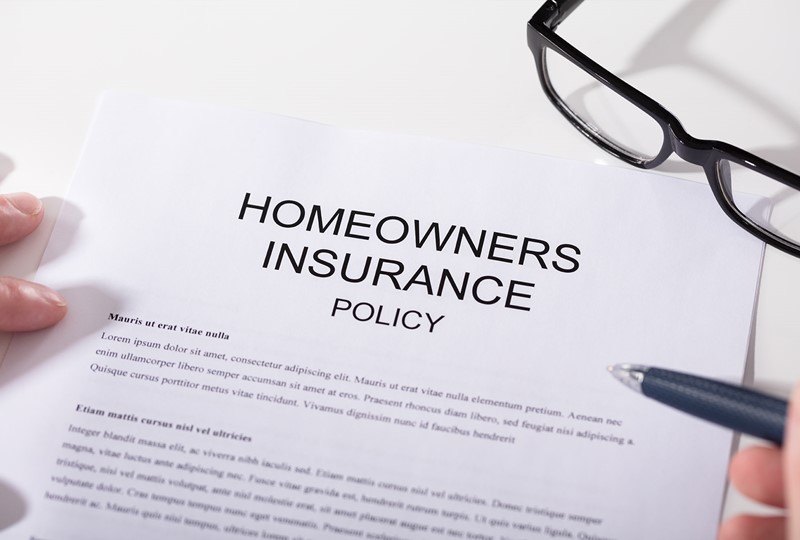
Key insights
- Homebuyers may be surprised to hear that they have to purchase homeowner’s insurance, but the policy protects against numerous important risks.
- While there are a few notable exceptions, homeowner’s insurance covers damage to your home’s structure and the belongings inside from a number of perils.
- Homeowner’s insurance also may protect you from liability if someone is injured while on your property.
If your lender is requiring that you buy homeowner’s insurance, don’t fret! This is a common precondition for a mortgage loan, and it doesn’t just benefit your lender— it works to your advantage, too.
Why am I required to buy homeowner’s insurance?
When you are approved for a home loan, your lender is agreeing to take on a significant financial risk. To minimize their risk, lenders only approve loans for homebuyers who are capable of paying monthly payments on time over the life of the loan.
But loan default isn’t the only potential risk to the lender’s investment. They must also protect the property from natural disasters, theft and other unexpected circumstances. To best accomplish this, they require the homeowner to purchase insurance on their property.
What does homeowner’s insurance cover?
In the most general sense, homeowner’s insurance covers the structure of your home and the belongings within it. It also protects you from liability should personal injuries occur on your property. Here’s a quick overview of typical coverage*:
- Dwelling coverage: Protects you from damage to the home’s structure, including that which occurs from fire, tornadoes, storms and hail damage. Flood insurance is covered under a separate policy, so if you are moving to a flood zone, be sure to buy a flood insurance policy.
- Liability: Protects you from lawsuits that may arise from injuries that occur on your property
- Personal possessions: Covers the cost of stolen or damaged goods if their purchase or ownership can be verified
- Medical payments: Covers medical bills that arise from injury occurring to someone visiting your property
- Loss of use: Covers living expenses if you have to move from your home while it’s being rebuilt or repaired
*Keep in mind that every policy varies and the above components may not be covered 100 percent. You’ll want to speak to your homeowner’s insurance representative about the specific amount of coverage they provide for different scenarios.
What if I can’t afford homeowner’s insurance?
While you may be surprised to hear that you have to purchase homeowner’s insurance, your lender will have factored in the cost when approving your loan. When lenders review your loan application, they consider the cost of your monthly “PITI,” which is:
- Principal: The monthly payment that goes directly toward paying off your mortgage loan
- Interest: The monthly interest charged on your mortgage loan
- Taxes: The estimated amount you’ll owe in property taxes
- Insurance: The estimated cost of your homeowner’s insurance
In short, if you were approved for a loan, it means that your lender believes you are capable of paying your monthly loan principal and interest, the money you’ll need to save and pay for your annual property taxes, plus the cost of homeowner’s insurance for your property.
What if I have more things I’d like covered?
Whether you want to secure flood insurance, a policy for your rental property or protect your prized jet ski, Edina Realty Insurance can help. Reach out today to talk with local insurance representatives about how you can minimize your risk and liability on your property and everywhere you go.
For more tips on how to buy a home, follow #BuyerInsights on Facebook, Twitter, Instagram and YouTube.









 ©2025 Prosperity Home Mortgage LLC®. (877) 275-1762. 3060 Williams Drive, Suite 600, Fairfax, VA 22031. All first mortgage products are provided by Prosperity Home Mortgage, LLC®. Not all mortgage products may be available in all areas. Not all borrowers will qualify. NMLS ID #75164 (For licensing information go to: NMLS Consumer Access at
©2025 Prosperity Home Mortgage LLC®. (877) 275-1762. 3060 Williams Drive, Suite 600, Fairfax, VA 22031. All first mortgage products are provided by Prosperity Home Mortgage, LLC®. Not all mortgage products may be available in all areas. Not all borrowers will qualify. NMLS ID #75164 (For licensing information go to: NMLS Consumer Access at